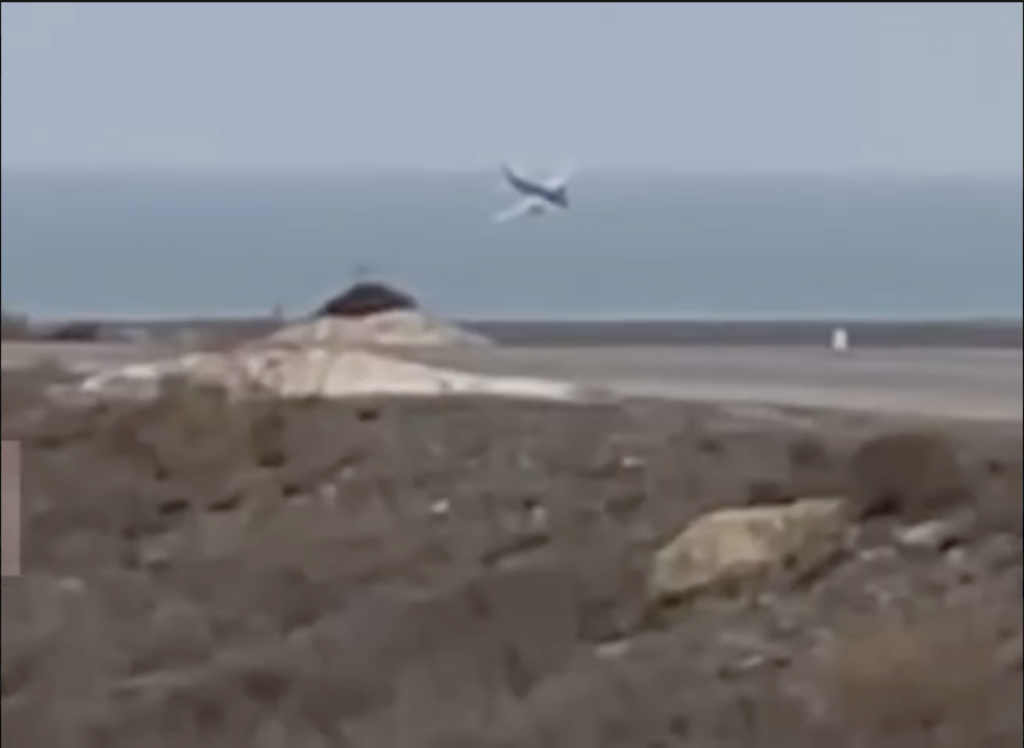
The US sees “early indications” that the Russian air defense system was likely responsible for the downing of Azerbaijan Airlines Flight 8243 on 25 December in Kazakhstan, according to US National Security Council spokesman John Kirby.
It’s not the first time Russia has been accused of shooting down a passenger plane. In 2014, a Russian-made Buk surface-to-air missile struck Malaysia Airlines Flight MH17 with 298 people on board; all confirmed dead. The missile was launched from a part of eastern Ukraine controlled by Russian-backed separatists. The incident sparked global outrage and heightened tensions between Russia and Western nations, leading to sanctions and calls for accountability.
Kirby said that evidence beyond widely circulated wreckage images points to Russian involvement in the incident. The US government has offered investigative assistance to Kazakh and Azerbaijani authorities.
On 25 December, the Embraer-190 aircraft departed from Baku for Grozny but crashed near Aktau, Kazakhstan, after being diverted. The incident resulted in 38 fatalities, including both pilots, while 29 people survived. Flight attendant Aidan Rahimli reported experiencing “three loud blows” outside the aircraft. Crew members described passengers and staff being injured by objects that penetrated the fuselage.
Aviation experts have observed shrapnel damage on the wreckage, reminiscent of the patterns seen in the MH17 incident. An anonymous former expert from France’s BEA air accident investigation agency noted that the wreckage exhibited “a lot of shrapnel” damage.
Reports suggest that the crash may have been caused by a missile fired from a Russian Pantsir-S air defense system near Grozny, where Russian air defenses were active against Ukrainian drones on that day. The aircraft’s request for an emergency landing at Russian airports was allegedly denied, leading it to divert to Aktau.
Russian flight regulator Rosaviatsia cited Ukrainian drone attacks and fog as complications near Grozny Airport. According to Rosaviatsia head Dmitry Yadrov, security measures required aircraft to leave the area, though airspace remained open despite implementing “Karpet” lockdown mode.
While Russian officials initially attributed the crash to weather conditions and bird strikes, surviving crew members contested these explanations. Flight attendant Zulfugar Asadov said that “this tragic situation arose due to external impact on the plane.” The crew also dismissed Russian media claims about an oxygen tank explosion.
In response to the incident, Azerbaijan Airlines has suspended flights to several Russian cities, citing potential safety risks.
According to Russian state news agency Tass, Kremlin spokesman Dmitry Peskov maintained that assessments should await the investigation’s conclusion.
Ukraine’s Center for Countering Disinformation accused the Kremlin of employing a deliberate strategy of silence regarding the downing of an Azerbaijan Airlines plane, which is a tactic reminiscent of its response to the 2014 downing of Malaysia Airlines Flight MH17. The Center argues that such silence indicates guilt and is a deliberate information warfare strategy, allowing time for the initial wave of truthful information to subside before introducing disinformation and conspiracy theories to manipulate public opinion.
The incident has sparked political reactions in Azerbaijan, with opposition party Musavat calling for Moscow to apologize and end the war in Ukraine, according to news agency Turan.
Related:

